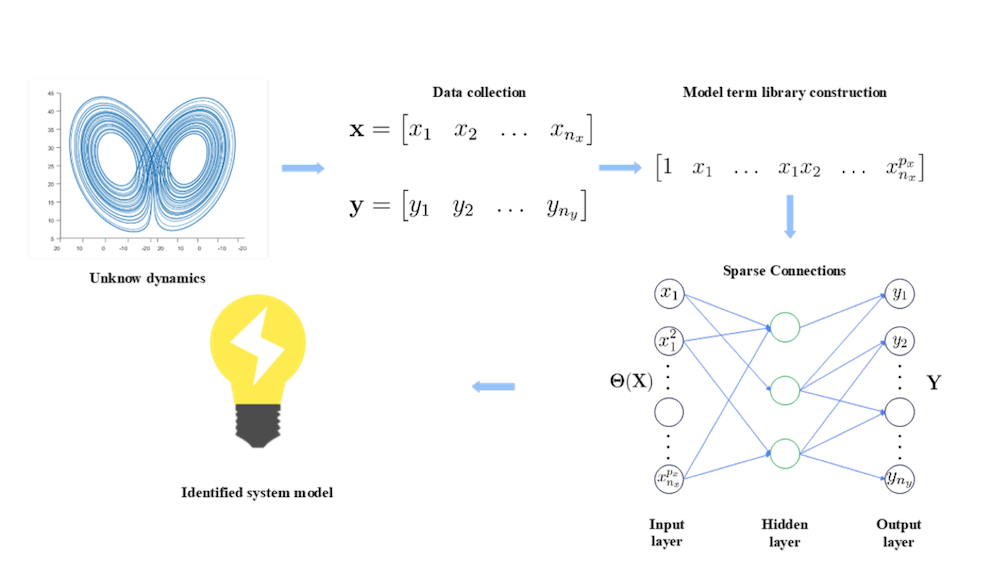Neural network and Sparse Identification of Nonlinear Dynamics Integrated Algorithm for Digital Twin Identification
In Proceedings of the 22nd IFAC World Congress,
Jingyi Wang, Jesús Moreira, Yankai Cao, R. Bhushan Gopaluni
[PDF] [Slides] [Video]

Click to enlarge image.
Abstract
Digital twins play a critical role in simulating industrial manufacturing systems to increase productivity and reduce time spent on troubleshooting. Owing to the complexity of realworld industrial systems, automatic sparse identification has emerged as an attractive approach to perform digital twin modelling. The sparse identification of nonlinear dynamics (SINDy) is a machine learning algorithm that performs feature engineering by generating a model term library and then solves a sparse regression problem between the objective outputs and the generated features. By solving a linear-in-parameter sparse regression problem, SINDy provides automatic discovery of system governing equations. However, the performance of SINDy-based algorithms may decline dramatically when applied to identify complex nonlinear relationships, such as implicit relationships. The substantial number of input variables for a real industrial process may further complicate the modelling procedure. We therefore propose the neural network and SINDy integrated algorithm to automatically select the critical features from a model term library and utilize the neural network to capture the process nonlinearity that cannot be captured by a linear-in-parameter model. SINDy performs feature generation considering both numerical methods and first-principles knowledge, making the proposed algorithm a hybrid system identification approach. A diesel hydrotreating unit case study with 37 input variables is analyzed in this paper to demonstrate the advantages of the proposed algorithm for nonlinear digital twin identification. By combining the advantages from both SINDy and neural networks, the proposed algorithm is able to improve the output prediction accuracy for all the three objectives.
Read or Download: PDF